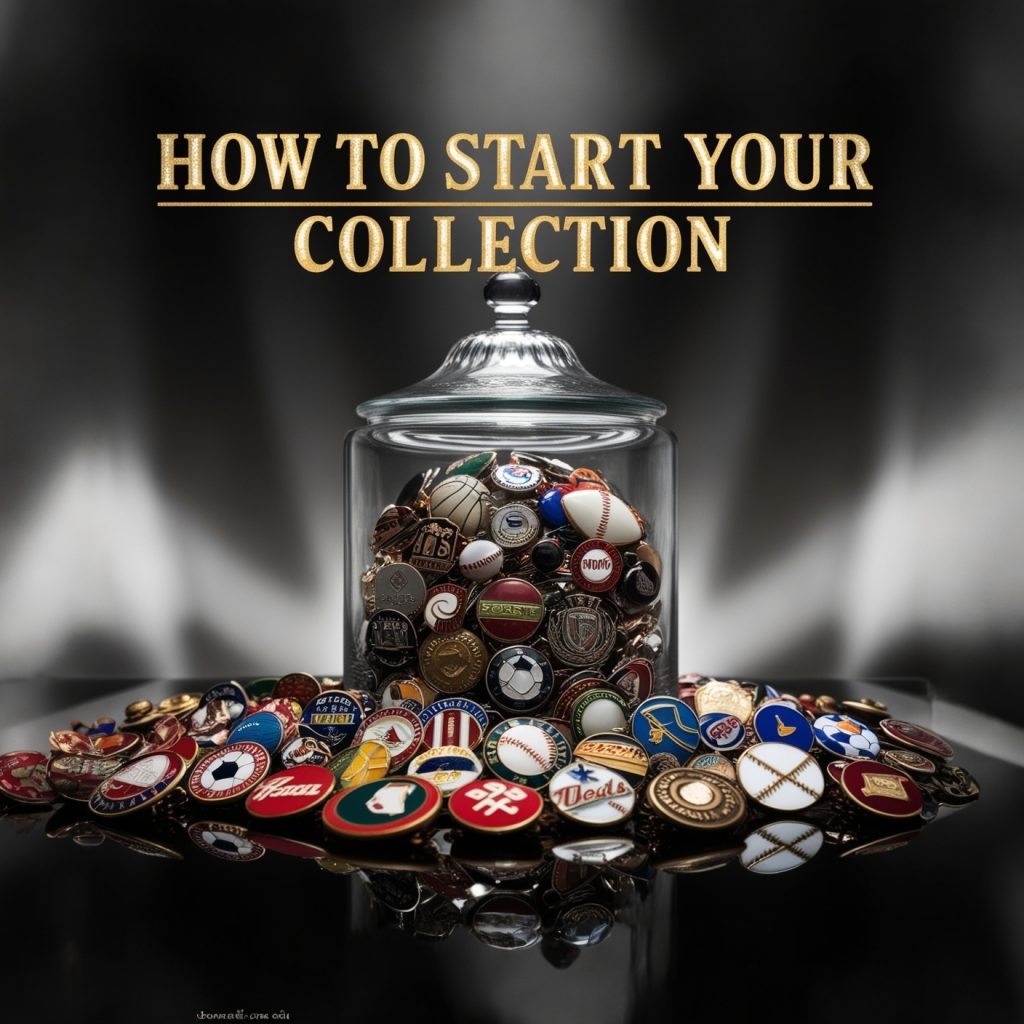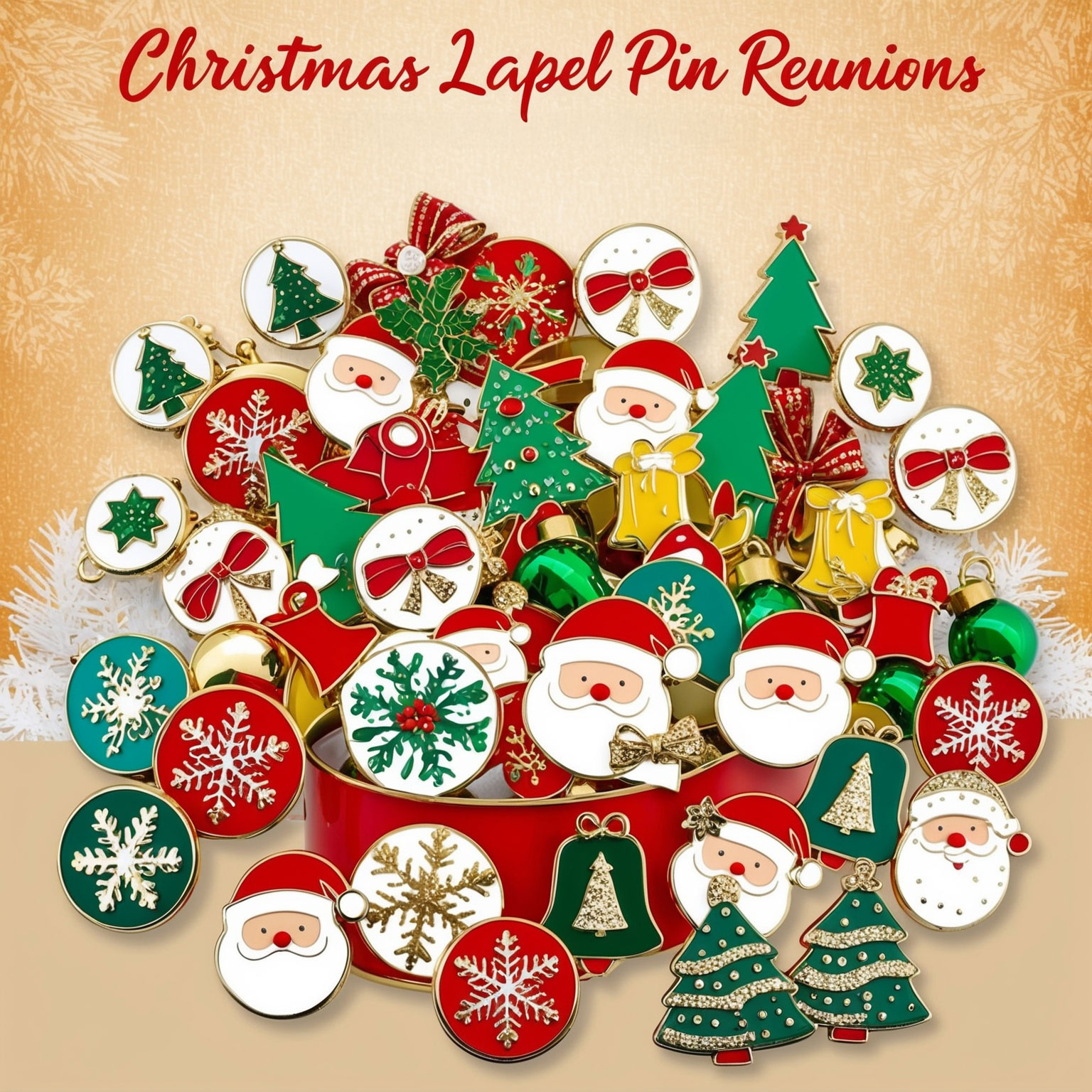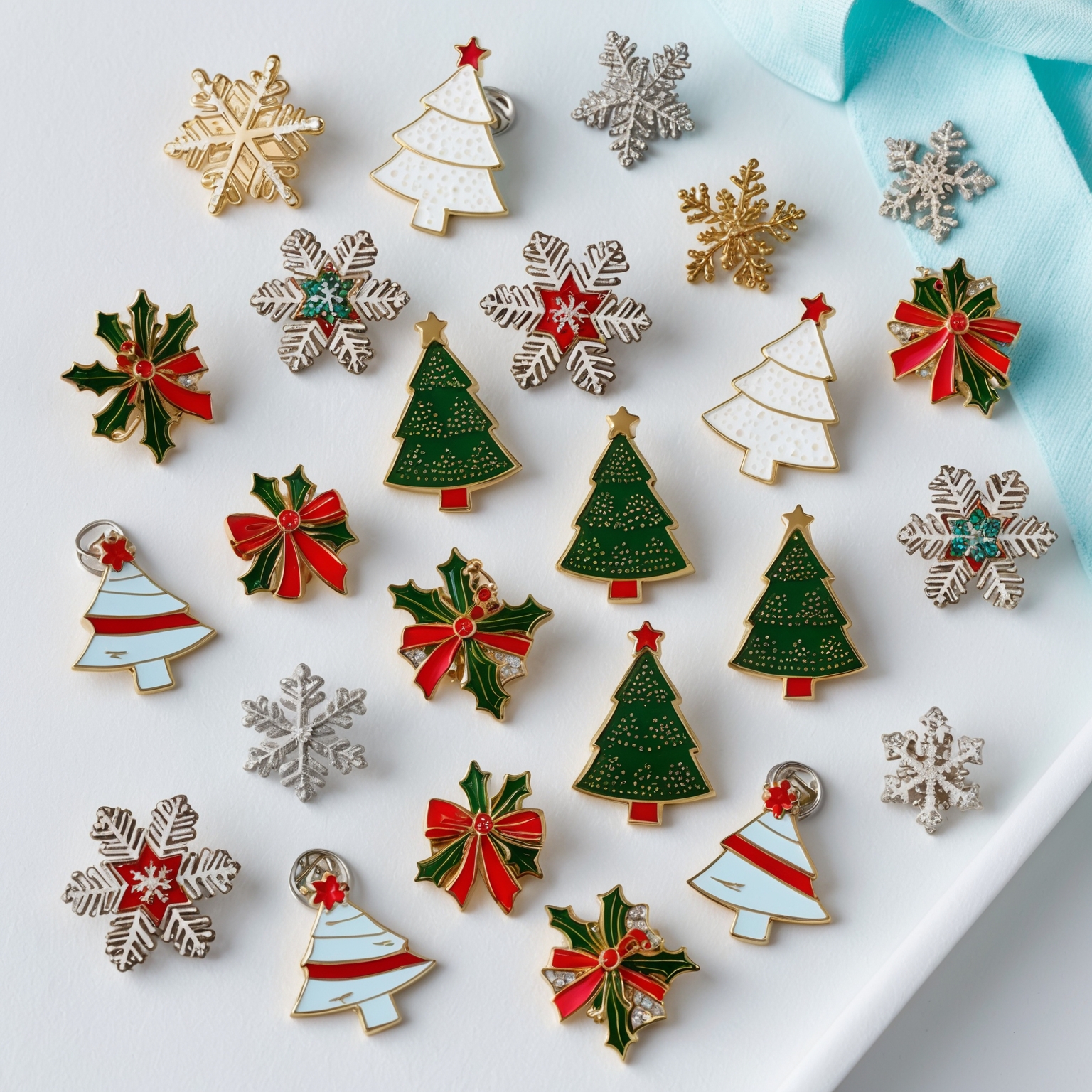Sports lapel pins have captivated collectors and sports enthusiasts for decades. These small, symbolic items are more than just pieces of memorabilia—they’re tokens of history, fandom, and personal connection to favorite teams, players, and events. Collecting sports lapel pins can begin as a casual hobby but can quickly evolve into a rewarding pursuit, offering opportunities for learning, social interaction, and even investment.
Whether you’re interested in collecting pins from major league teams, Olympic events, or youth sports tournaments, building a sports lapel pin collection requires some strategy, knowledge, and a passion for the game. In this article, we’ll take you on a journey from novice to seasoned collector, outlining how to start, grow, and enjoy your sports lapel pin hobby.
Let’s dive in and explore how you can build a strong foundation for your collection, expand it strategically, and get the most out of this exciting hobby.
The Appeal of Collecting Sports Lapel Pins
Before we discuss how to start your custom lapel pin collection, let’s explore why so many people are drawn to this hobby. From the casual fan to the serious collector, everyone finds something special in these small but meaningful items.
1. Nostalgia and Sentimental Value
One of the biggest reasons people collect sports lapel pins is the sentimental value they carry. Many pins are associated with significant moments in sports history, such as championships, memorable games, or special events. For fans, these pins serve as a reminder of their favorite team’s victories or unforgettable matches they attended.
Pins also evoke nostalgia, reminding collectors of childhood memories—perhaps from attending games with family, playing in youth sports leagues, or receiving their very first pin from a beloved player or coach.
2. Connection to Sports History
For serious sports fans, lapel pins offer a tangible connection to the rich history of sports. Pins commemorating significant events like the Olympics, World Series, Super Bowl, or FIFA World Cup hold a special place in the hearts of collectors. They represent more than just a piece of metal—they’re a part of the legacy of sports.
3. Collectibility and Investment Potential
While many collectors start simply for fun, sports lapel pins can also have monetary value. Limited-edition pins, rare vintage pieces, or pins tied to historic events can increase in value over time. For some collectors, hunting for rare and valuable pins becomes a part of the thrill, and a well-curated collection can even be a wise long-term investment.
4. Community and Social Interaction
The social aspect of pin collecting can’t be overlooked. Many collectors attend sports events specifically to trade pins with fellow enthusiasts, participate in pin shows, or join online forums where they can share their latest finds. Trading pins is a great way to meet new people who share the same passion for sports, allowing collectors to build lasting friendships and connections.
Now that we’ve explored why sports lapel pins are so popular, let’s look at how you can get started on building your own collection.
1. Start by Defining Your Sports Lapel Pin Collection’s Focus
The first step in building a solid foundation for your sports lapel pin hobby is to define your collection’s focus. Without a clear direction, it’s easy to become overwhelmed by the sheer number of pins available on the market. Establishing a focus not only helps you make more intentional decisions but also gives your collection a sense of cohesiveness.
Consider These Common Focus Areas:
- Team-Based Collection: Many collectors focus on collecting pins from a specific sports team. Whether you’re a die-hard fan of an NBA, NFL, MLB, or NHL team, or you follow college or local sports, building a collection centered around one team allows you to explore a variety of pins tied to that franchise’s history.
- Event-Based Collection: Some collectors focus on major sporting events like the Olympics, Super Bowl, World Series, or All-Star games. Event-based pins often commemorate specific dates, games, or tournaments, making them a great choice for collectors who love sports history.
- Player-Based Collection: If you have a favorite athlete, you might choose to collect pins featuring or associated with that player. This could include pins from their rookie season, major milestones, or endorsements.
- Sport-Specific Collection: You can also focus on one particular sport, such as baseball, soccer, basketball, or ice hockey, and collect pins from various teams, events, or leagues within that sport.
- Vintage or Historical Pins: Vintage collectors seek out older, rare pins from decades past. These pins can often have significant historical value and can be harder to find, making the hunt for these items a rewarding challenge.
- Youth Sports or Local Teams: Some collectors focus on pins from youth sports leagues, high school teams, or local events. This can be particularly meaningful if you or your family members have participated in these sports.
By defining your collection’s focus, you’ll have a clearer sense of what types of pins to look for, where to find them, and how to grow your collection over time.
2. Learn About the History and Value of Sports Lapel Pins
Once you’ve chosen your focus, it’s time to educate yourself about the history and value of custom sports lapel pins. Understanding the significance of different pins will not only help you make informed decisions but also deepen your appreciation for your collection.
Historical Overview of Sports Lapel Pins
Sports lapel pins date back more than a century, with early examples often tied to major league teams, tournaments, and championship events. Early 20th-century pins, for instance, were produced to commemorate World Series games or team championships. As sports grew in popularity, so did the variety and sophistication of pins produced by leagues and teams.
The Olympics, in particular, has a long and storied history with lapel pins. Since the early 20th century, athletes, officials, and fans have worn and traded pins to commemorate each Olympic Games, making Olympic pins some of the most iconic and collectible sports pins.
Recognizing Valuable Pins
When assessing the value of a sports lapel pin, several factors come into play:
- Rarity: Limited-edition pins, pins produced in small quantities, or those tied to significant events are often more valuable.
- Condition: Pins in mint or near-mint condition, with original packaging or backing, typically have a higher value. Wear and tear, missing clasps, or faded colors can diminish a pin’s worth.
- Age: Vintage pins, especially those from early sports events or teams that no longer exist, tend to hold significant value. The older the pin, the rarer it is, particularly if it’s well-preserved.
- Historical Significance: Pins tied to memorable events, such as championship games, milestone achievements, or major sporting events, often have higher value due to their connection to sports history.
Understanding these factors will help you identify which pins in your collection may increase in value over time and which ones are must-haves for your theme.
3. Building Your Sports Lapel Pin Collection: Where to Start
Now that you have a focus and an understanding of the value of sports lapel pins, it’s time to start acquiring pins for your collection. Depending on the type of collection you’re building, there are numerous places to find quality pins that match your interests.
Best Places to Find Sports Lapel Pins:
- Official Team Stores and Online Shops: Many professional sports teams offer a variety of pins through their official stores, both in person and online. These include limited-edition pins, pins commemorating special games, and anniversary pins. Checking your favorite team’s website or store is a great way to start building a team-based collection.
- Sports Memorabilia Shops: Specialty shops that focus on sports memorabilia are treasure troves for pin collectors. These stores often stock pins from a wide range of teams, sports, and events, including vintage and rare finds.
- Online Marketplaces: Websites like eBay, Etsy, and Amazon are excellent resources for finding both new and vintage sports lapel pins. Be sure to carefully read seller reviews and product descriptions to ensure you’re getting authentic pins in good condition.
- Sports Events and Conventions: Attending live sporting events, fan conventions, or sports memorabilia shows can provide opportunities to purchase exclusive event-based pins. Some events even have designated areas for pin trading, making them a great way to acquire new pins while engaging with other collectors.
- Pin Trading Communities: Joining pin trading communities, either online or in person, can be an excellent way to grow your collection. Platforms like Facebook, Instagram, Reddit, and dedicated pin trading forums allow you to connect with other collectors, share your collection, and make trades.
By exploring different avenues for finding pins, you’ll have access to a wide variety of options for expanding your collection, from local finds to rare international treasures.
4. Organizing and Displaying Your Sports Lapel Pin Collection
As your sports lapel pin collection grows, it’s essential to keep your pins organized and stored properly. Not only does this help you keep track of your collection, but it also ensures that your pins remain in good condition over time.
Organizing Your Collection:
- Sort by Theme or Category: Group your pins based on your collection’s focus. For example, you could organize pins by team, event, year, or player. This helps keep your collection visually cohesive and makes it easier to track which pins you have and which you’re still seeking.
- Create a Digital Inventory: Keep a digital catalog of your pins using an Excel spreadsheet, Google Sheets, or a dedicated pin collecting app. This allows you to log key details about each pin, such as its name, date, purchase location, and value.
- Label Rare or Valuable Pins: If you have rare or valuable pins, consider labeling them with key information, such as their production year, event, or limited-edition status. This helps you remember the significance of each pin and can be helpful for insurance purposes.
Displaying Your Collection:
- Pin Boards: One of the most popular ways to display sports lapel pins is on pin boards. Corkboards, fabric boards, or specially designed pin displays allow you to arrange your pins in a visually appealing way while keeping them easily accessible.
- Shadow Boxes: For a more polished look, use shadow boxes to display your most valuable or meaningful pins. Shadow boxes protect your pins from dust and damage while providing an attractive way to showcase them.
- Pin Albums: If you prefer a more portable option, consider using pin albums to store and organize your collection. These albums are like photo albums but designed specifically for lapel pins, allowing you to flip through your collection easily.
A well-organized and beautifully displayed collection not only makes it easier to enjoy your pins but also helps you take pride in your hobby.
5. Growing Your Collection Through Trades and Networking
As with many hobbies, one of the joys of collecting sports lapel pins is connecting with fellow enthusiasts. Trading pins is a fun and interactive way to expand your collection, find rare items, and meet new people who share your passion.
Pin Trading Tips:
- Attend Pin Trading Events: Many sports events, fan conventions, and memorabilia shows host dedicated pin trading areas where collectors can trade pins with one another. These events are ideal for finding unique pins that may not be available for sale elsewhere.
- Join Online Pin Trading Communities: Platforms like Reddit, Facebook, and Instagram have vibrant pin trading communities where collectors post their pins for sale or trade. These communities are a great resource for expanding your collection and connecting with other collectors.
- Offer Fair Trades: When trading pins, make sure you’re offering a fair exchange. It’s important to research the approximate value of your pins and the pins you’re trading for to ensure both parties are satisfied with the trade.
- Collaborate with Other Collectors: Build relationships with other collectors by attending events or participating in online discussions. Collaborating with experienced collectors can help you learn more about pin trading, find rare pins, and gain valuable insights about the hobby.
Trading not only helps you acquire new pins but also enhances the social aspect of collecting, making it a fun and rewarding way to grow your collection.
6. Recognizing and Acquiring Limited-Edition Pins
Limited-edition sports lapel pins are often the most sought-after pieces in any collection. These pins are typically produced in small quantities and are tied to special events, championships, or team anniversaries, making them highly collectible.
How to Find Limited-Edition Pins:
- Check Team Stores: Many sports teams release limited-edition pins for special games, anniversaries, or championship seasons. Keep an eye on official team stores for exclusive pin drops.
- Watch for Event Releases: Major sporting events like the Olympics, Super Bowl, or NBA Finals often release limited-edition pins for attendees. These pins are typically only available at the event, making them rare and valuable.
- Join Pin Maker Mailing Lists: Independent pin makers sometimes collaborate with sports teams or events to create limited-edition pins. By joining mailing lists, you’ll stay informed about upcoming releases and get early access to purchase exclusive pins.
- Follow Social Media Announcements: Many limited-edition pins are announced via social media. Follow your favorite sports teams, events, and pin makers on platforms like Instagram and Twitter to stay up-to-date on new releases.
Acquiring limited-edition pins not only adds value to your collection but also makes it more unique and personal.
7. Caring for Your Sports Lapel Pin Collection
As your collection grows, it’s important to take good care of your sports lapel pins to ensure they stay in excellent condition. Proper care and storage will protect your pins from damage and help them retain their value over time.
Pin Care Tips:
- Handle with Clean Hands: Always handle your pins with clean, dry hands to avoid transferring oils, dirt, or moisture onto the metal or enamel.
- Store in a Cool, Dry Place: Keep your pins in a cool, dry environment to prevent tarnishing or rusting. Avoid exposing them to extreme temperatures or humidity.
- Clean Gently: If your pins become dirty or dusty, gently clean them with a soft cloth. Avoid using harsh chemicals or abrasive materials that could damage the enamel or metal.
- Protect from Scratches: When storing multiple pins together, consider placing a small piece of foam or fabric between each pin to prevent them from scratching each other.
By taking good care of your pins, you’ll preserve their condition and ensure they remain valuable for years to come.
Enjoy the Journey from Novice to Sports Lapel Pin Collector
Collecting sports lapel pins is a hobby that combines passion, history, and the joy of discovery. Whether you’re starting with a few pins from your favorite team or diving into the world of rare and vintage collectibles, this hobby offers endless opportunities for growth, connection, and creativity.
By following the steps outlined in this article—defining your collection’s focus, learning about pin history and value, finding quality pins, and building connections with fellow collectors—you’ll build a strong foundation for your sports lapel pin hobby. As you expand your collection, don’t forget to enjoy the journey and embrace the excitement of discovering new pins, sharing your collection with others, and exploring the rich world of sports memorabilia.
If you are interested in some custom lapel pins, feel free to contact us at 1-855-471-6752 or fill out one of our FREE QUOTE FORMS.
Happy collecting!



